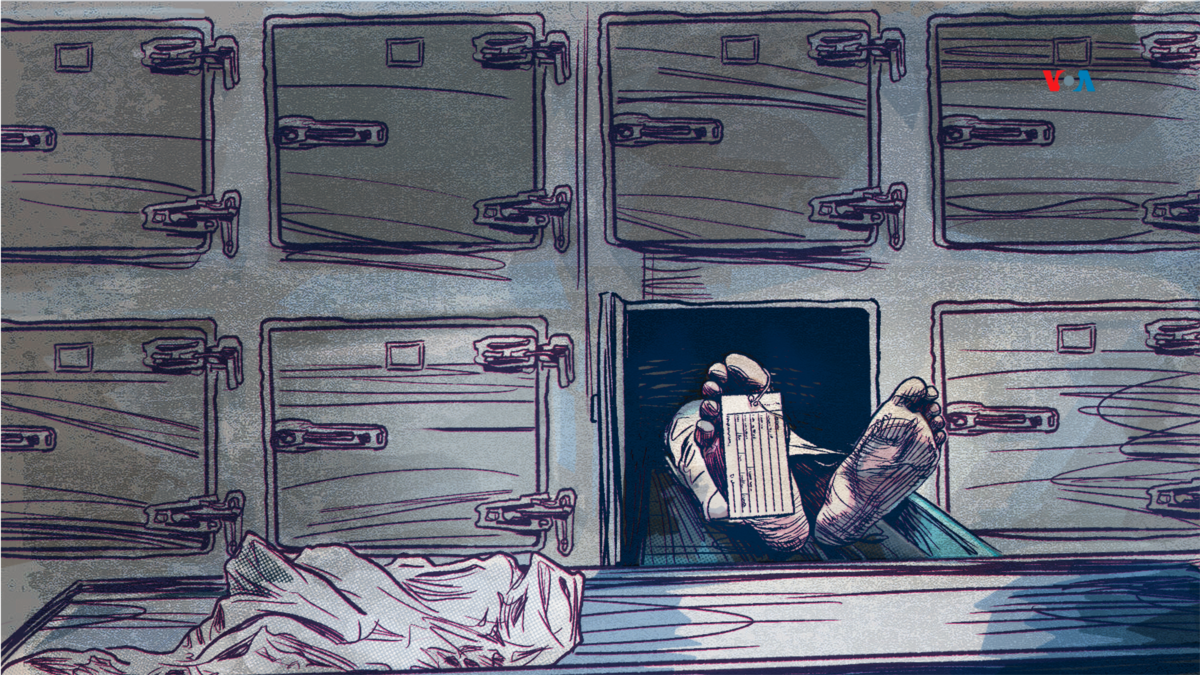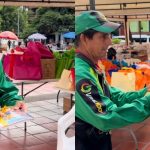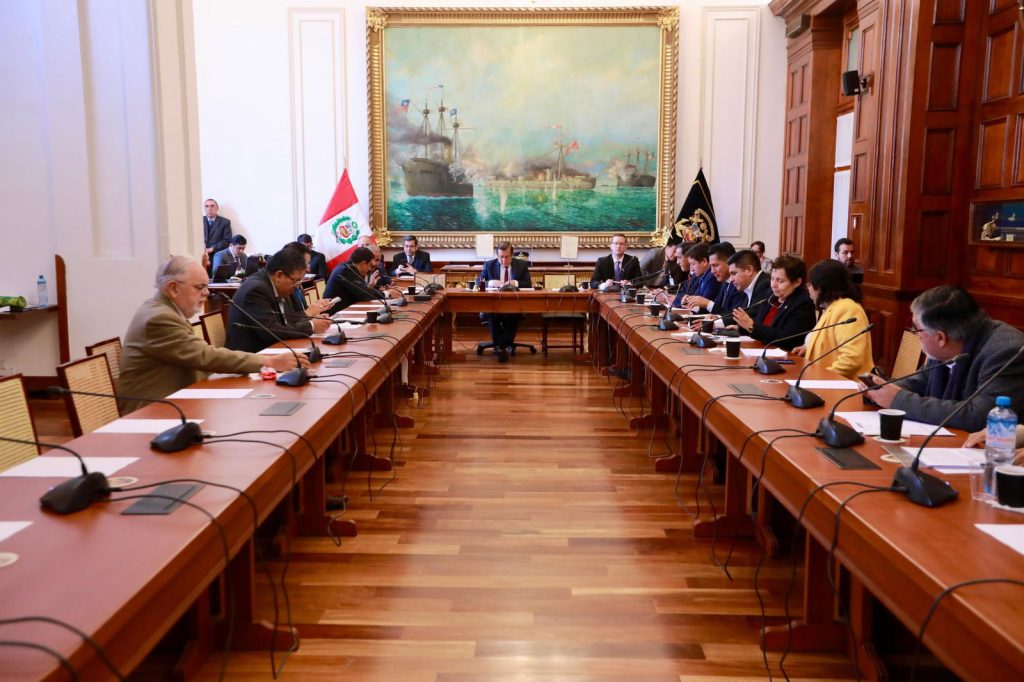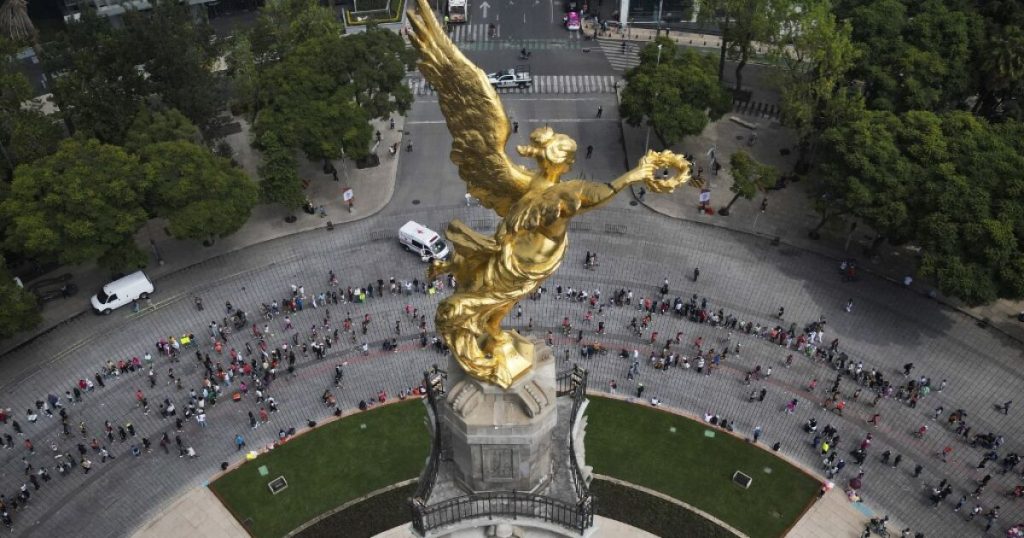Elena Elizabeth Salguera has been waiting for more than two years for the remains of her husband, Hiparco Alejandro Guzmán, to arrive in Nicaragua so he can be buried next to his children and mother. The man was 33 years old when he drowned in the Rio Bravo, on the border between Mexico and the United States.
The tragedy occurred in July 2022. Guzmán tried to cross illegally into the United States with a group of friends who encouraged him to undertake the journey, convinced that beyond the river they would find work and a better life.
His wife had already lost contact with him hours before crossing.
“She went to the United States because of some friends who told her that there were opportunities there, that she would earn a lot more and that she would find work quickly. She traveled and we were in constant communication until the last day when they decided to come,” the woman told the newspaper by phone. Voice of America.
The couple had been married for 15 years. They were facing various economic difficulties that made it difficult for them to survive in Nicaragua, the second poorest country in Central America, according to international indicators.
The family did not immediately learn of the man’s fate and began searching for him with the support of migrant assistance organizations such as the Texas Nicaraguan Community (TNC).
“The organization began to help me with the search in Mexico first, then here in Nicaragua to make a request to the Foreign Ministry, which did not help at all. They did not pay attention to me at all,” the woman lamented.
Repatriating a body involves a complex process that requires notification to the Nicaraguan government, in this case, for the corresponding procedures and to raise the money to pay a funeral home that is in charge of the repatriation procedure, whether of an intact or cremated body.
In the United States, the TNC has reported difficulties in obtaining support from the Nicaraguan government in the repatriation process of its compatriots, whether financial or in the form of efforts to speed up this type of process.
Cristine Ochoa, director of the Nicaraguan Community of Texas (TNC), told the VOA who feel “practically abandoned” by Daniel Ortega’s government for this type of procedure.
“We talked about the closure of many consulates in the United States and Mexico, and this has an impact because the consulates that are available, which are the embassy in Washington and the consulate in Miami, cannot cope with the number of Nicaraguans who are doing paperwork throughout the United States. This leads to people not knowing what to do when the situation of repatriation arises,” said Ochoa.
Nicaragua has Most consulates closed in the United States and Mexico earlier this year without giving a clear explanation.
The Consular Law of Nicaragua states that their main objective is to promote and encourage trade between Nicaragua and other nations, and to provide the protection that the State must provide in foreign territory to its citizens and national interests.
The VOA sent a request for comment to Vice President Rosario Murillo on the closure of consulates abroad, but has not received a response. She also did not respond to the allegations by pro-migrant organizations about the state’s abandonment of Nicaraguans.
Ochoa explains that when a person, in this case a Nicaraguan, dies, the funeral home normally contacts the embassy so that it can “submit” —as they call it— the death certificate.
“But in the case of Nicaragua this is not happening. They don’t even answer calls. They never respond, people get desperate. They never pick up the phone, they never answer emails either,” he laments.
Ochoa mentions that the funeral homes that have more experience in the matter are making contacts directly with the Foreign Ministry in Nicaragua, sending them the documentation in advance, “telling them that a body is coming and they send the body like that, without doing that part which is the registration of the death certificate.”
In the case of Hiparco Alejandro Guzmán, who died by drowning in the Rio Bravo, when other relatives tried to speed up the process, the Foreign Ministry’s response was negative.
“I went to the Foreign Ministry a week after my relative was reported missing. I never got a response. Never. The last time I visited the Nicaraguan Foreign Ministry, I was told that the people who had traveled were no longer considered Nicaraguan citizens because they had made the decision to leave the country and that we should see what we could do because they considered him a deserter. I never went back because I didn’t get any good response and no progress. I was practically ignored,” lamented the relative of the Nicaraguan who asked not to be identified.
“The last time I visited the Nicaraguan Foreign Ministry, I was told that the people who had traveled were no longer considered Nicaraguan citizens because they had made the decision to leave the country.”
Repatriation costs vary
According to the Nicaraguan Community of Texas (TNC), apart from the administrative obstacles that relatives face in repatriating the bodies of their relatives, there are other financial obstacles.
Repatriation costs vary by state. “The further north or central you are in the United States, the higher the costs become. Reports we have from funeral homes in Miami and Houston, the two cities with the cheapest repatriation costs, are $4,000,” TNC says.
For this reason, an unspecified number of Nicaraguans have contracted repatriation services offered by some funeral homes in Managua. However, some relatives complain of excessive costs and misleading clauses.
The entire procedure can cost from $3,000 to even $11,000. VOA contacted at least three funeral homes in Nicaragua and the United States that offer the service and confirmed the prices mentioned by the organization.
José Rodolfo, 34, died on July 17, 2023 due to a work accident in Kansas City, Missouri. His family had previously taken out insurance in Nicaragua for more than $11,000 and when using the repatriation service, he arrived in a cardboard box for burial.
“It’s not fair. It costs a lot to collect so much money and the fact that they brought it in a cardboard box makes us very angry,” a relative of the young man told a local channel.
As the Nicaraguan migration increases, also the number of requests for repatriation by relatives, responding to the number of deceased Nicaraguans.
In 2023, 148 Nicaraguan migrants died in the United States, according to reports from the Nicaraguan Community of Texas. The same organization documented the deaths of 49 Nicaraguans in 2022.
The NGO regrets that its resources are very limited to support these repatriation processes. “We do not have government aid, nor do we have assistance from other large organizations. The NGO was formed in view of the need of the Nicaraguans and we are all volunteers. We all have our regular jobs and what we do is donate time in the volunteer work that we do in the NGO,” said its president to the VOA.
The number of Nicaraguans killed abroad is expected to rise this year.
“To date, we are talking about four months left and we have already counted about 120 (Nicaraguan) people who have died. We are anticipating a frequency of between 15-17 deaths per month,” concluded the president of the organization.
Connect with the Voice of America! Subscribe to our channelsYouTube, WhatsApp and to newsletter. Turn on notifications and follow us on Facebook, X and Instagram.

















